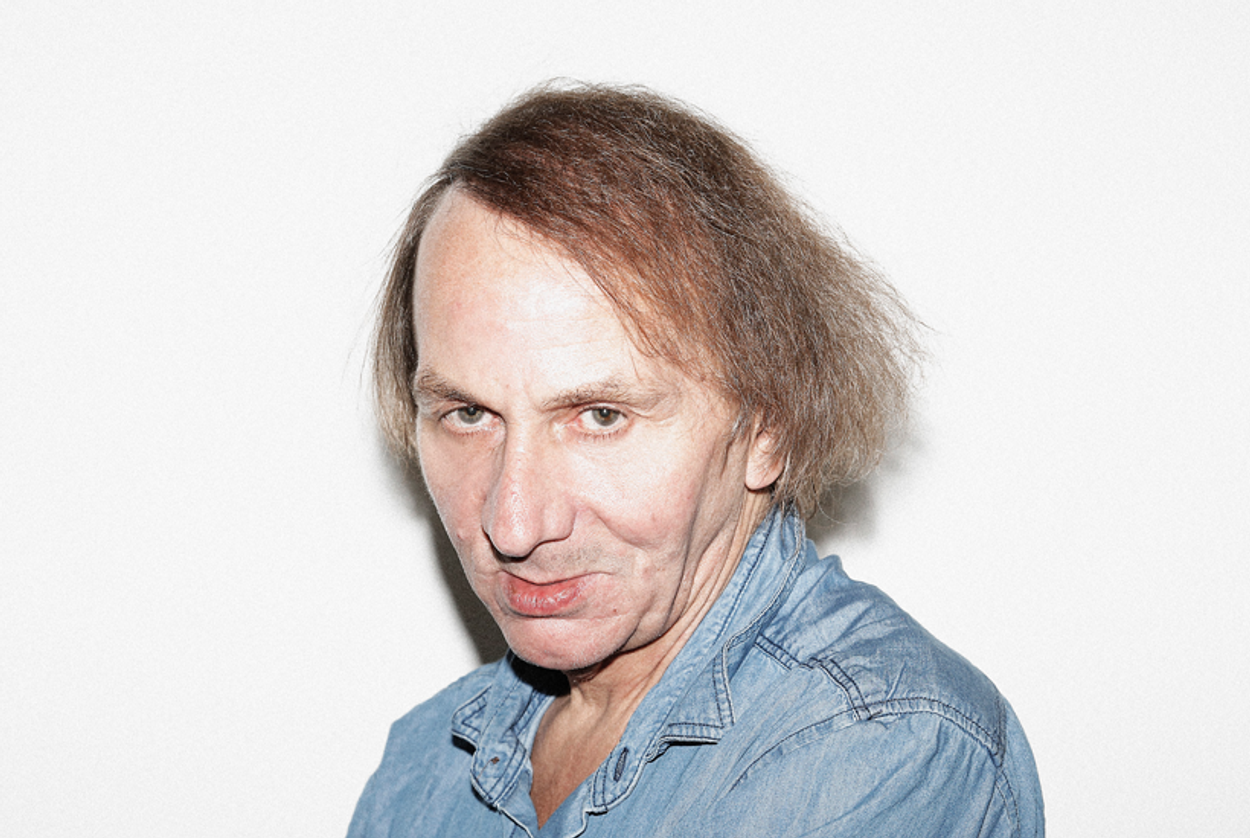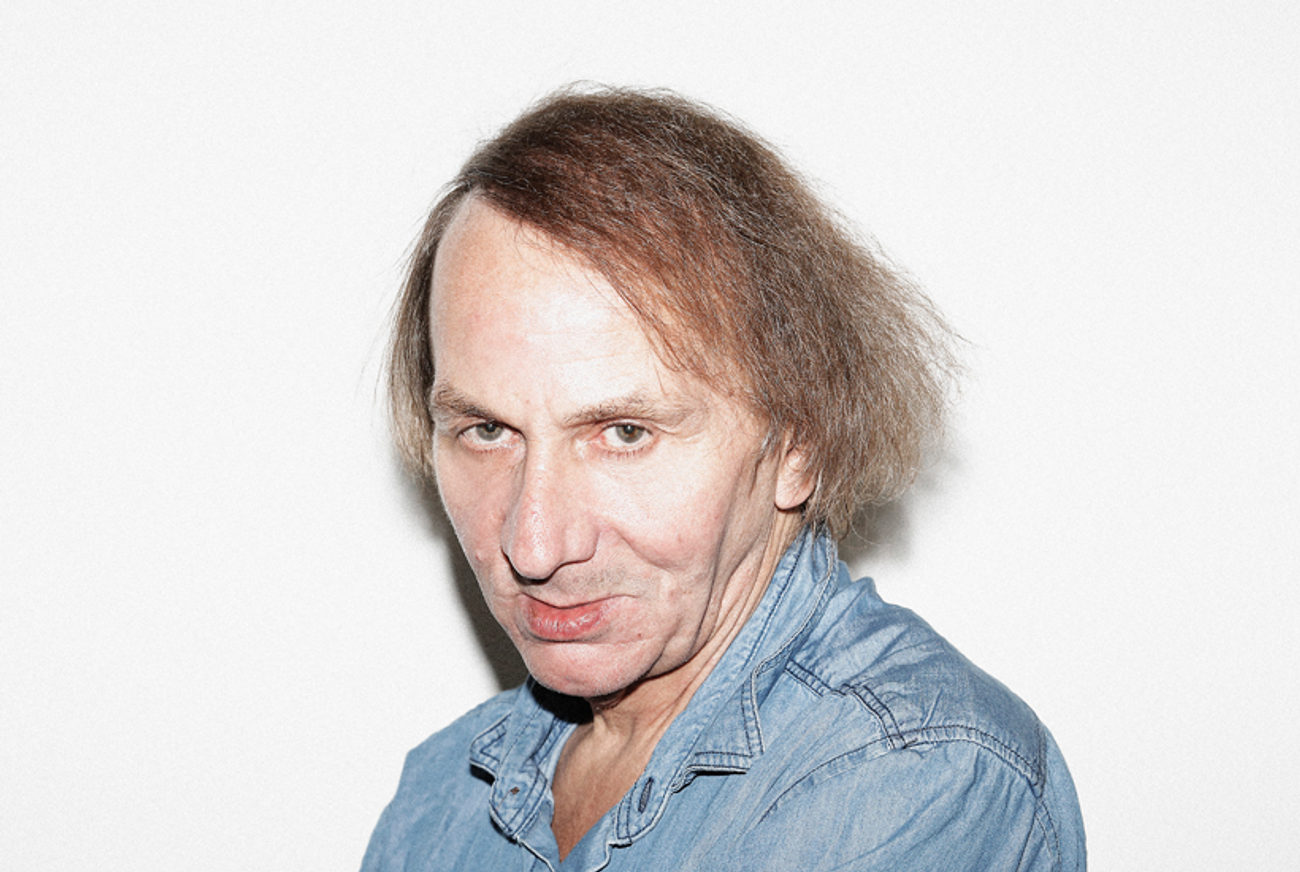Michel Houellebecq’s Toxic New Novel of an Islamist France
The author of ‘Submission,’ a fantasy of Western decadence, is tortured by Romantic ghosts




It is a commonplace notion that the novel is an instrument for knowing the world. But any serious novelist knows that it is by the unique way he strings words together, through his personal obsessions, that he’ll have a chance to get to the truth of things. He knows that his tool, in other words, is none other than himself. It is in this tension between the individual consciousness, inherited from Romanticism and applied to the author’s experience, and the essentially tragic conscience of a world beyond the author’s reach, that hangs the rare successful novel. If it is too meek and intimate, it collapses and becomes dull; if it is too ambitious—or if it requires an ambition beyond the author’s means—it smothers itself (and the reader as well).
Contemporary French literature has been mostly famous (or not famous) for falling into the first category. Then, in the 1990s, it fell upon Michel Houellebecq to symbolize for our generation in France the rebalancing of both sides of the scale. Two books were enough: Extension du domaine de la lutte, or Broadening the Fighting Field (1995), and, especially, Les particules élémentaires, or Elementary Particles (1998). Although less successful than the first, the breadth of both the realist and philosophical scope of this second novel fully marked the return of a French literary ambition divested of the corsets that various avant-garde theories had placed on French fiction over the course of the preceding decades. These two liberating books marked “the return of the real,” as people were beginning to say, in the French novel.
Two points were insufficiently emphasized at the time. The first is the stubbornly Romantic aspect of the art of the novel according to Houellebecq. His literary consciousness, almost exclusively forged by the 19th century—Balzac, Baudelaire, Dostoyevsky, Nietzsche—watches the world founder from the perspective of categories that he believes to be intangible. One might note in passing that this definition is exactly the one that Cioran, in his insufficiently read essay on Joseph de Maistre, gives for what he names the Reactionary mind. If one is to believe what Houellebecq says, his search for the perfect social order leads him to the feudalism of the Middle Ages. What came afterward—the Renaissance, Protestantism, the Enlightenment—is, according to him, the direct cause of modern nihilism, decadence and mass society.
The second point, which is what makes Houellebecq so toxic—his poisonous trademark, so to speak—is that he devoted this anti-modern spirit, which is so French, to defending the consumer of this same mass society rather than to condemning him. This was his true coup de génie when he started—possibly his only one, and it is above all an aesthetic one (Warhol isn’t far off). Houellebecq was listened to because he drew strong conclusions about our own time, where kitsch and classicism meld together, and where the leftist lashing-out at cultural elitism has for a long time been simply beating a dead horse.
Since then, he has acquired for himself a place in France that is so strange, in some respects so monstrous, that writing about his books with a minimum of distance in France is becoming almost impossible. As an extreme example, in the Journal du Dimanche, Alain Finkielkraut went so far as to see in Houellebecq, a week before his book came out, “a kind of stranger who reveals not the absurdity of the world … but its meaning, forgotten by those who are immersed in it”—a prophet or a quasi-messiah.
Soumission is at the same time the clearest and the weakest novel of its author. The subject of this fictitious political novel is the victory of a Muslim government in France in 2022 and its consequences (the etymology of the word Islam means submission, and it is the second sense of the title). Its theme—a theme common to Islamist ideology, to the extreme right in France, to the ultra-right Tea Party in America, and to Houellebecq—is the supposed decadence of the West, where religious nihilism and the end of patriarchy have permitted this victory in the novel (and in reality, soon, if we don’t watch out). Events are related by François, a narrator who is himself a specialist of the Decadent French writer Huysmans, the evocation of which provides Houellebecq the philosophical, religious, and truly political background for the book.
To those who are surprised by this, it should be pointed out that Houellebecq here remains entirely faithful to his enterprise. It is in the name of a Romantic consciousness in opposition to modern mass society that he offers his apology of the apathetic supermarket customer rather than that of the rebel, and praise for singles clubs as opposed to the sexual revolution. Huysmans, in Soumission, embodies the role of this consciousness, in the name of which, finally, will be carried out the conversion of France to Islam—a religion of the masses if there ever was one.
The problem with this new book is not only that certain sentences smack of lazy writing. It is the lazy nonchalance with which Houellebecq treats his subject. Not only are the international consequences of the situation he describes treated in a few paragraphs that show an irritating naiveté but, what is remarkable for the given subject, one does not meet in the novel a single Muslim by birth, if I might say—no descendant of immigrants, no emir. There are no French Jews either, with the exception of the character of Myriam, the narrator’s young mistress. Finally, neither can one find in Soumission any representative of those middle classes that are the usual subject matter for the author of Particules.
Is this because the starting idea of an Islamic government in France is so implausible that, in order to have it hold up until the end, Houellebecq had to eliminate from his narrative anything that would normally have given it texture? The fact is that François’ only interlocutors on Islam in the book are political converts, who have come out of French nationalist circles. Ultimately, the subject of the novel consists primarily in underscoring the convergences between those former French nationalists and the Muslims, in the fight for the utopian but necessary restoration of a patriarchy that will save the West from itself. This is a subject about which there has been nothing really new since at least T.E. Lawrence and the Orientalist current of Romantic fascism. In France, it is this same subject that led so many Frenchmen to understand Pétain—like Houellebecq himself, in fact, as he affirmed in an interview with Lire that continues to remain famous in France (“I find it easy to go play the wise guy in London,” he declared in 2001 comparing De Gaulle and Pétain, “rather than face the real problems of the country”).
From this point of view we should stop for a second on the character of Myriam, because it is through her that Houllebecq treats at the same time the question of the place of women and that of Jews in the book. If Myriam is a “disposable” mistress, as she says about herself, it is because she has been “used to considering herself as an individual person”; in other words, she is a product of the decadence that followed the end of the traditional Western patriarchy. For the West to be able to be reborn, the patriarchy must be rightfully reestablished. How? Because Christianity no longer has the strength to do it, the restoration will take place thanks to the political victory of Islam—a conservative Islam, cleared of its terrorist component, able to enter into an alliance with Catholicism. Such is the central thesis of Michel Houellebecq. (“But for that,” he adds in his interviews, “something has to give. That will be the Republic.”)
In the book, this victory by Islam has as a natural result that Myriam is chased out of France—sent to Israel where she opportunely finds a sense to her life. This nationalistic Zionism, typical of a certain extreme right, makes it possible to dispose simultaneously of the thorny question of French Jews, but also of independent women. “There is no Israel for me,” concludes the narrator on this subject. All that is left for him is therefore to submit to the new regime—and to derive from it certain natural advantages, by way of polygamy.
The basic question of this book, however, is less political than it is literary. Because it refuses the tragic, Romantic consciousness has no other choice but to accept what is repugnant to it. The decadent is a Romantic who tortures himself, his theory the expression of a form of self-hatred. That this book should find such resonance in France today is hardly innocuous. Houellebecq, contrary to what Finkielkraut says, is never a realist. If his pen is dipped in cyanide, if his literature is dangerous, it’s because it says something about the mental country in which we live.
An earlier French-language version of this article appeared in Le Monde. Translation by Ralph Tarica.
Marc Weitzmann is the author of 12 books, including, most recently, Hate: The Rising Tide of Anti-Semitism in France (and What It Means for Us). He is a regular contributor to Le Monde and Le Point and hosts Signes des Temps, a weekly public radio show on France Culture.